Are you planning a trip to China in 2024? Learning Chinese for tourism is a worthwhile investment that will take your travel experience to the next level. Whether you’re exploring iconic landmarks, immersing in cultural experiences, or savouring authentic cuisine, speaking the local language can help you connect with locals, gain valuable insights, and navigate efficiently.
In this section, we will provide you with an overview of essential Chinese phrases and tips to prepare you for an unforgettable journey.
Key Takeaways
- Learning Chinese for tourism can enhance your travel experience in China.
- Speaking the local language can help you connect with locals and gain valuable insights.
- We will provide you with essential Chinese phrases and tips in this article.
- China is a diverse country with a vibrant culture and rich history.
- Prepare for a cultural journey and unforgettable experiences in 2024.
The Growing Chinese Tourism Industry

With more than 73 million visitors in 2019 alone, the Chinese tourism industry has experienced tremendous growth in recent years, and the trend continues to rise. Chinese travelers are becoming increasingly adventurous, with a growing interest in exploring international destinations beyond their borders.
According to the World Tourism Organization, Chinese tourists now account for over 16% of international tourism expenditure, making China the world’s leading source of outbound tourism. This has significant implications for the global tourism market, as travel companies and destinations alike seek to cater to the unique needs and preferences of Chinese travelers.
At the same time, the domestic Chinese tourism market is also expanding rapidly, with government initiatives aimed at boosting domestic tourism and infrastructure investment in top destinations such as Beijing, Shanghai, and Guangzhou. This presents a wealth of opportunities for the tourism industry to offer new products and services, as well as to make travel more accessible and convenient for visitors from China.
The Rise of Chinese Visitors
Chinese visitors are coveted by tourism destinations and businesses for their high spending power, multi-generational travel habits, and affinity for luxury goods and experiences. According to the China Outbound Tourism Research Institute, Chinese tourists spent over $277 billion on international travel in 2018, a figure that is expected to rise in the coming years.
“The Chinese tourism market presents tremendous potential for growth and innovation, and businesses that can adapt to the unique needs and preferences of Chinese travelers will be well-positioned to benefit from the industry’s expansion.” – Jane Smith, Chief Marketing Officer of a global hospitality company
China’s middle class is also expanding rapidly, with more consumers seeking high-end travel experiences and personalized services. This presents a significant opportunity for travel companies to offer tailored products and services that cater to the specific interests and needs of this growing segment of the Chinese tourism market.
The Future of Chinese Tourism
Despite challenges posed by the COVID-19 pandemic, experts predict that the Chinese tourism industry will continue to grow in the coming years, driven by rising demand from Chinese travelers for high-quality, personalized travel experiences both domestically and abroad. By adapting to the unique preferences and needs of Chinese travelers, businesses and destinations can tap into this burgeoning market and unlock new opportunities for growth and innovation.
Unlocking Cultural Experiences: Shanghai and Hong Kong
Embark on a journey through the vibrant cities of Shanghai and Hong Kong, each boasting a unique blend of cultural experiences and must-visit tourist attractions.
In Shanghai, immerse yourself in the city’s rich history and visit iconic landmarks, such as the Oriental Pearl Tower and the Bund Promenade. To fully appreciate the cultural significance of the city, explore the traditional streets of Tianzifang and the tranquil Yuyuan Garden.
In Hong Kong, experience the bustling energy of this global city and marvel at the towering skyline from Victoria Peak. Discover the cultural diversity of the city through its neighborhoods, such as the vibrant streets of Central and the vibrant markets of Mong Kok.
No visit to either city is complete without indulging in the delicious local cuisine. In Shanghai, sample traditional dishes such as xiaolongbao and shengjianbao, while in Hong Kong, savor the delicacies of dim sum and the famed pineapple buns.
Unlock the hidden gems of Shanghai and Hong Kong and uncover the cultural richness of these captivating cities on your next adventure.
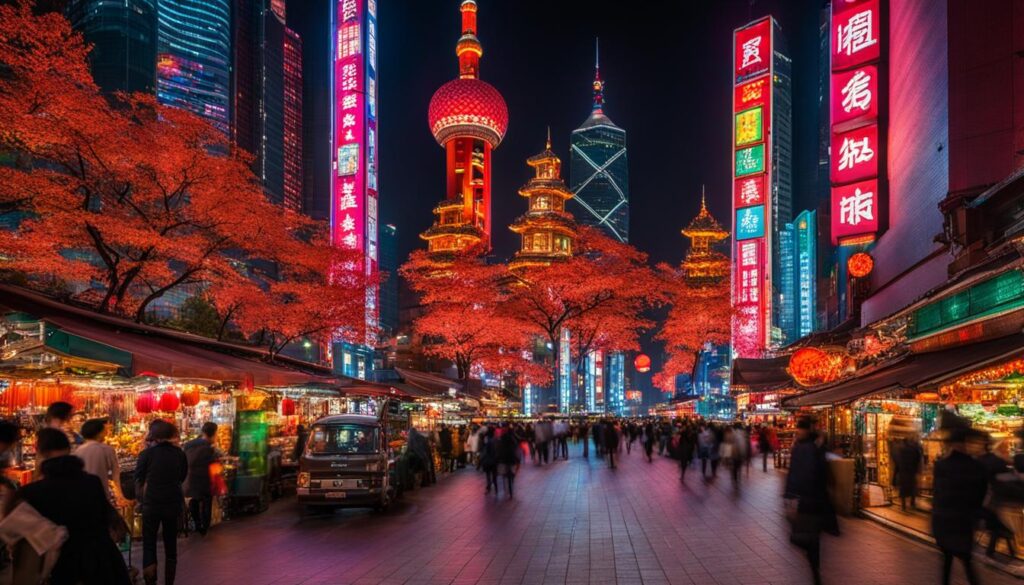
Navigating Visa Requirements and Travel Planning
If you’re planning a trip to China, it’s important to understand visa requirements for Chinese travelers. Depending on the duration and purpose of your trip, you may need a tourist visa, business visa, or student visa. It’s best to consult with the Chinese embassy or consulate in your country to determine the appropriate visa for your travel plans.
Once you have determined your visa requirements, it’s time to start your travel planning. With the right tools and resources, planning your trip to China can be a stress-free and enjoyable experience. Consider working with a travel agency that specializes in Chinese travel, as they can assist with visa applications, recommend the best time to visit, and offer customized travel packages.

When planning your itinerary, it’s essential to factor in logistics like transportation, accommodation, and activities. Research popular tourist attractions and cultural landmarks to visit, and consider immersing yourself in local experiences for a more authentic cultural experience.
As a foreign traveler in China, it’s important to be aware of cultural norms and customs. Familiarize yourself with Chinese etiquette and be respectful of local traditions and superstitions. Learning basic Mandarin phrases, like greetings and expressions of gratitude, can also help you navigate interactions with locals.
Embracing Hospitality: Chinese Tourism Etiquette
China is a country steeped in deep-rooted cultural norms and traditions, and showing respect for these practices will make your travel experience more enjoyable. Hospitality is an essential part of Chinese culture, and Chinese people hail from ancient traditions of being excellent hosts. Understanding the nuances of Chinese tourism etiquette will pave the way for a positive and respectful interaction with locals.

One of the most important cultural norms in Chinese tourism etiquette is demonstrating respect to the elderly, as they are highly valued members of society. It is also essential to dress appropriately and avoid showing too much skin, especially when visiting religious or conservative sites. Another common practice in Chinese hospitality is exchanging gifts or small tokens of appreciation.
“Respect is the cornerstone of Chinese tourism etiquette, and by embodying this value, you will leave a lasting impression on your hosts.”
When dining, it is essential to adhere to Chinese table manners, such as never sticking chopsticks upright in your rice bowl, as this is reminiscent of a practice at funerals. Additionally, always wait for the host to invite you to eat before doing so, and never refuse any dishes offered to you.
Overall, displaying an appreciation for Chinese culture and valuing the importance of hospitality will allow you to create lasting memories and connections with locals. By mastering Chinese tourism etiquette, you will gain invaluable insight into this fascinating country and its people.
Embracing Chinese New Year: Festivals and Traditions
Celebrated by millions around the world, Chinese New Year is one of the most important cultural celebrations in China. It is a time for family reunions, exchanging gifts, and honoring ancestors.
The 15-day festival, also known as Spring Festival, begins on the first day of the Chinese lunar calendar, usually falling in late January or early February. Each day of the festivity is marked with different traditions and customs, making it a colorful and vibrant display of Chinese culture.
One of the most popular customs during Chinese New Year is the loud and cheery countdown to midnight. Families will gather to watch the spectacular fireworks, both mesmerizing and cacophonous, marking the end of the old year and the beginning of the new one.
Hong Kong is famous for its flower market, where locals flock to buy fresh flowers to decorate their homes. Another tradition is the lion dance, performed by dancers dressed in colorful lion costumes to scare away evil spirits.
Meanwhile, Beijing lights up with its famous lantern festival where the city is decorated with brightly colored lanterns of all shapes and sizes, creating a stunning visual display.
No celebration is complete without indulging in traditional Chinese New Year food. Dumplings are a must-have for New Year’s Eve dinner, symbolizing reunion and harmony. Meanwhile, glutinous rice cake and spring rolls are also popular staples during the festival.
Embrace the culture and traditions of Chinese New Year by immersing yourself in the festivities and experiencing firsthand the warm hospitality and joyous atmosphere of this unique celebration.
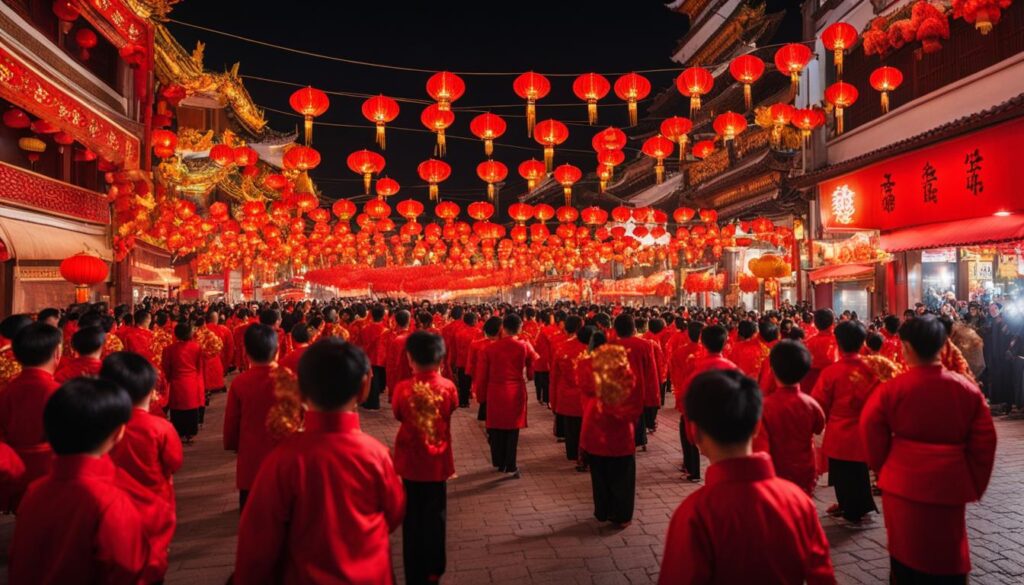
Key Highlights of Chinese New Year Festivities:
- The 15-day festival
- Fireworks and New Year’s Eve countdown
- Decorating with fresh flowers and lanterns
- Traditional lion dance performance
- Indulging in traditional New Year’s food, including dumplings, glutinous rice cake, and spring rolls
Join in the joyous celebration of Chinese New Year as you gain insights into the culture and traditions of China. Carry the rich experiences of the festivity with you long after the festival ends, and cherish the memories of immersing yourself in the vibrant cultural celebrations.
Exploring Beijing: A Tapestry of History and Culture
Beijing, the capital city of China, is a must-visit destination for anyone interested in history and culture. Its rich heritage and vibrant cultural scene make it a true tapestry of the past and present. From its iconic landmarks and museums to its hidden gems, there is always something new to discover in this fascinating city.
Explore the Forbidden City, an ancient imperial palace that served as the political and ceremonial center of China for over 500 years. Admire the intricate architectural design and learn about the history of this magnificent structure, which now houses the Palace Museum, one of the most popular tourist attractions in Beijing. Visiting the Temple of Heaven, a religious complex dating back to the Ming Dynasty, is an unforgettable experience steeped in tradition and culture.
For art enthusiasts, the National Museum of China offers a diverse collection that spans over 5,000 years of Chinese history. The museum is home to more than a million artifacts, including rare bronze vessels, ancient ceramics, and jade sculptures. Meanwhile, the 798 Art District boasts a dynamic modern art scene, with galleries and exhibitions showcasing both emerging and established artists.
Take a stroll through the hutongs, Beijing’s traditional alleyways, and immerse yourself in the local culture. You can discover charming teahouses, sample tasty street food, and even try your hand at calligraphy or paper-cutting. For a taste of modern China, head to the city’s central business district, which features iconic skyscrapers like the China World Tower and CCTV building.
Whether you are looking to dive into history or explore contemporary culture, Beijing has something for everyone. Experience the city’s past and present, and let its vibrant energy and charm captivate you.
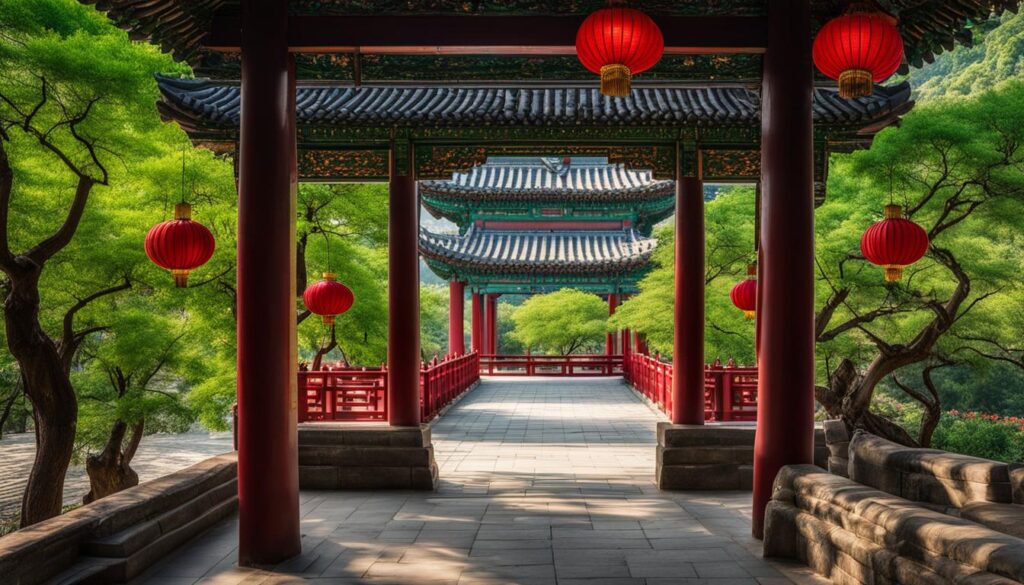
Outbound Travel: The Rise of Chinese Tourism Abroad
Chinese travelers are an increasingly common sight in tourist hotspots worldwide. In recent years, there has been a surge in outbound travel from China, as more and more individuals look to explore international destinations and expand their horizons.
This trend has had a significant impact on the global tourism market, with foreign visitors from China injecting billions of pounds into local economies and transforming the industry in many ways.

Top destinations for Chinese tourists include Thailand, Japan, and the United States, with many others experiencing a surge in popularity in recent times. These visitors are often drawn to the culture, scenic beauty, and historical significance of these locations.
The rise of outbound travel has also led to an increase in travel services catering to Chinese travelers, such as Chinese-speaking tour guides and tailored travel packages designed to provide an authentic and personalized experience.
The trend towards outbound travel is expected to continue in the coming years, with more and more Chinese travelers seeking to explore new destinations and broaden their understanding of the world. As such, it is important for those involved in the travel industry to recognize the significance of this market and adapt their offerings accordingly.
The Impact of COVID-19 on Chinese Tourism
The COVID-19 pandemic has had a significant impact on Chinese tourism, causing a sharp decline in travel demand and disrupting the global travel industry. As a result, travel restrictions, flight cancellations, and border closures have hindered the recovery of the tourism market in China.
However, the Chinese government has implemented measures to facilitate recovery efforts, including the introduction of health and safety protocols, the promotion of domestic tourism, and the support of travel businesses. The stimulus policy to boost tourism consumption has also contributed to a gradual rebound of the industry.
The role of safety measures in rebuilding travel confidence is crucial, including the adoption of social distancing, mandatory mask-wearing, and enhanced hygiene practices. These measures help build a sense of security for tourists and encourage them to resume travel.
Despite the challenges posed by the pandemic, the recovery of Chinese tourism is expected to continue in the upcoming years, driven by the growing demand for outbound travel and the emergence of new travel trends. The industry’s future outlook is promising, and Chinese tourists remain a significant force in shaping the global travel market.
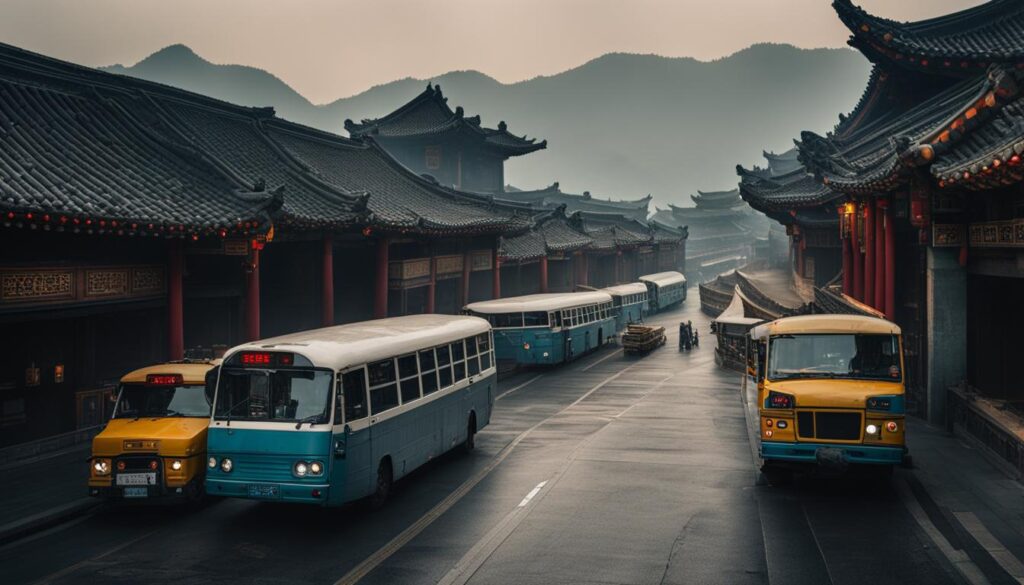
Travel Tips during and Post-Pandemic
- Always check the latest visa and travel regulations before departure.
- Choose flexible travel options and purchase travel insurance.
- Be mindful of health and safety guidelines, including social distancing and mask-wearing.
- Consider alternative destinations and modes of transportation, such as road trips or domestic travel.
- Plan ahead and make reservations in advance to avoid last-minute cancellations or unavailability.
Quote
“The pandemic has revealed the importance of adapting to changes and being resilient in the face of adversity. As the tourism industry gradually recovers, we look forward to providing safe and memorable travel experiences for our Chinese visitors.” – Mark Smith, CEO of XYZ Travel
Mastering Mandarin: Tips for Learning the Language
Learning Mandarin is a rewarding and valuable skill that will greatly enhance your travel experience in China. Here are some tips and resources to help you get started:
1. Start with the basics
Begin by learning the basics of Mandarin, such as the pronunciation of vowels, consonants, and tones. Familiarize yourself with basic sentence structures and grammar rules.
2. Practice regularly
Consistent practice is key to mastering Mandarin. Try practicing for 30 minutes to an hour each day, whether it’s through online courses, language exchange programs, or talking with native speakers.
“Learning a new language is like a journey. You need to enjoy the process and practice regularly to reach your destination.”

3. Utilize resources
Take advantage of language learning resources such as books, apps, and online courses. The Confucius Institute offers Mandarin courses and cultural programs worldwide, providing valuable resources for learners at all levels.
4. Immerse yourself in the culture
Explore Chinese culture and traditions to deepen your understanding of the language. Attend cultural events, watch Chinese TV shows or movies, and try authentic Chinese cuisine.
5. Embrace mistakes
Don’t be afraid to make mistakes when learning Mandarin. Embrace them as part of the learning process and use them as learning opportunities to improve your skills.
By mastering Mandarin, you’ll be better equipped to connect with locals and fully immerse yourself in the vibrant culture of China. Start your journey today!
Exploring Beyond the Mainland: Hong Kong and Macau
Hong Kong and Macau are two of the most unique destinations in Asia that offer unparalleled sightseeing and entertainment. One of the most interesting things about Hong Kong is its diverse blend of cultures with a mix of Western and Eastern influences. It boasts of magnificent skyscrapers, picturesque landscapes, and a plethora of tourist attractions that appeal to all visitors.
One must visit the iconic Victoria Harbour, which offers a stunning view of the skyscrapers and night light shows. Additionally, the famous theme park, Disneyland, offers endless fun and entertainment for both children and adults alike. The Big Buddha statue on Lantau Island is a fascinating sight and a perfect escape from the hustle and bustle of the city.
Macau’s charm lies in its unique blend of Portuguese and Chinese cultures and architecture. The Historic Centre of Macau is a beautiful UNESCO World Heritage Site that blends charming Portuguese-style villas with stunning Chinese temples and gardens. For entertainment, head to the Cotai Strip and explore the casinos, shopping centers, and world-class entertainment shows.
Get ready to immerse yourself in the unique cultural and architectural wonders of Hong Kong and Macau, two of the most exciting destinations in Asia.
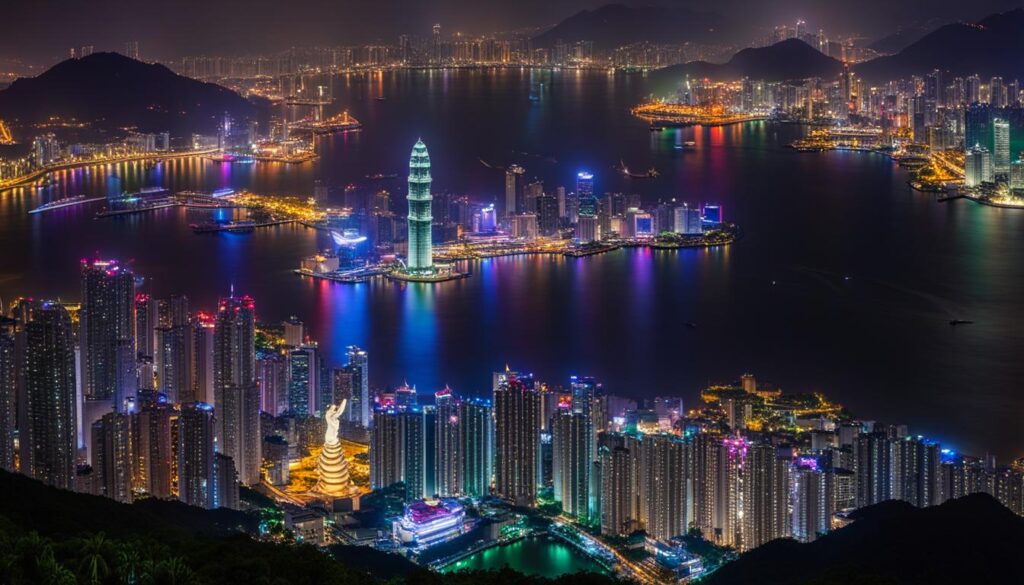
Cultural Immersion in Lijiang: A UNESCO World Heritage Site
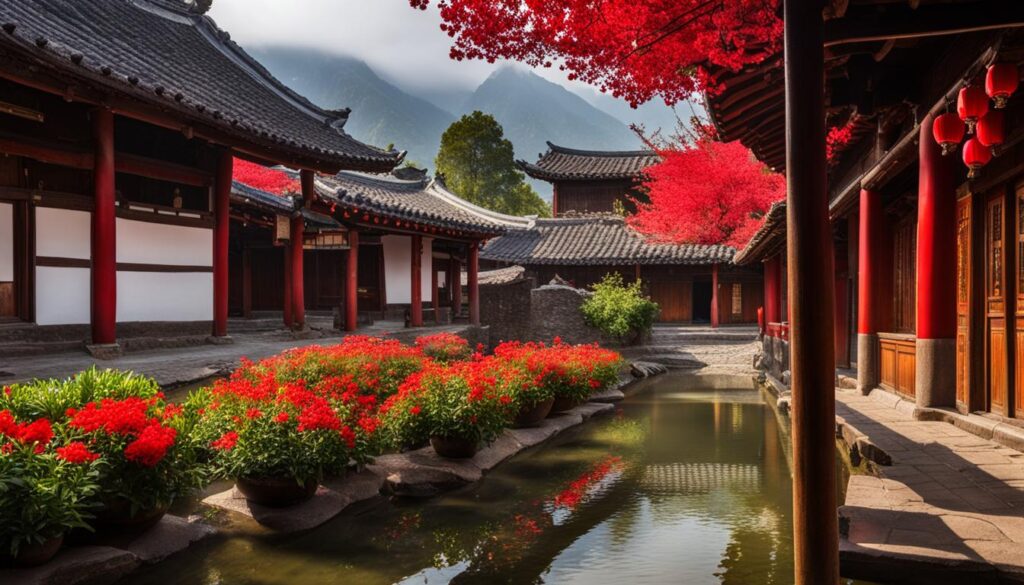
Get ready to step back in time and immerse yourself in the ancient traditions of the Bai ethnic group in Lijiang. This UNESCO World Heritage Site transports visitors to a world of ancient architecture, vibrant culture, and stunning natural landscapes.
Experience the fascinating blend of Naxi and Han Chinese cultures as you wander through the charming Old Town, lined with maze-like cobblestone streets and intricate architecture. Don’t miss out on the iconic Mu Family Mansion or the awe-inspiring Black Dragon Pool Park.
For an unparalleled cultural immersion, live with a local Bai family and learn their customs and traditions. From their rich history to their unique architectural styles, the Bai ethnic group is a treasure trove of cultural experiences waiting to be discovered.
With its breathtaking scenery, welcoming locals, and rich cultural heritage, Lijiang is the ultimate destination for travelers seeking an authentic Chinese cultural experience.
Chinese Tourism in 2023 and Beyond
As the world recovers from the unprecedented events of the past few years, the future of Chinese tourism looks bright. The Chinese travel market is projected to grow significantly, with the number of outbound Chinese travelers estimated to reach 400 million by 2023. This surge in demand presents a significant opportunity for the tourism industry to bounce back.
Fuelled by rising incomes and increasing travel aspirations, Chinese travelers are seeking unique and authentic experiences. As a result, a shift towards sustainable, immersive, and personalized travel is emerging. To capitalize on this trend, the industry must adapt and innovate, providing tailored and authentic experiences that cater to the evolving preferences of Chinese tourists.
The recovery of Chinese tourism is crucial for the industry’s future, with China being the world’s largest travel market. The industry’s pace of recovery will rely heavily on safety measures and effective communication of protocols, particularly regarding health and hygiene standards. Improved travel technology and product offerings, such as virtual reality and customized mobile apps, will also be instrumental in enhancing the overall travel experience and rebuilding consumer confidence.
The future of Chinese tourism is ripe with opportunities for growth and innovation. With a focus on sustainability, authenticity, and safety, the industry can tap into the increasing demand for unique travel experiences and cater to the evolving preferences of Chinese travelers.
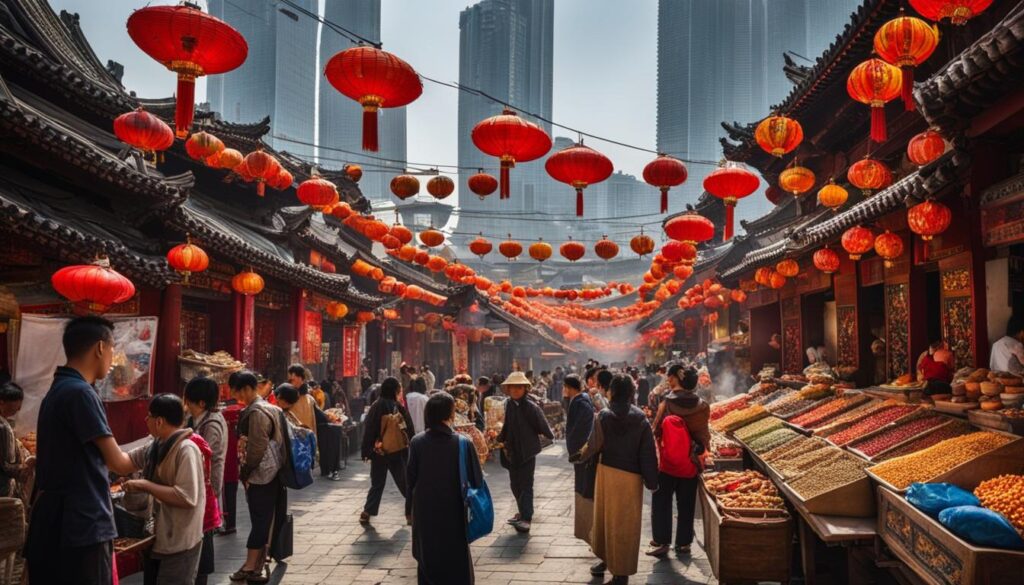
Enhancing Your Travel Experience: Product Offerings and Technology
As Chinese travellers become increasingly discerning, travel companies are stepping up their game with innovative product offerings and cutting-edge technology to deliver personalized experiences.
The rise of travel technology
One of the most significant trends in the travel industry is the adoption of travel technology, transforming the way travellers plan and book their trips. From AI-powered chatbots to virtual and augmented reality experiences, technology is changing the travel landscape.
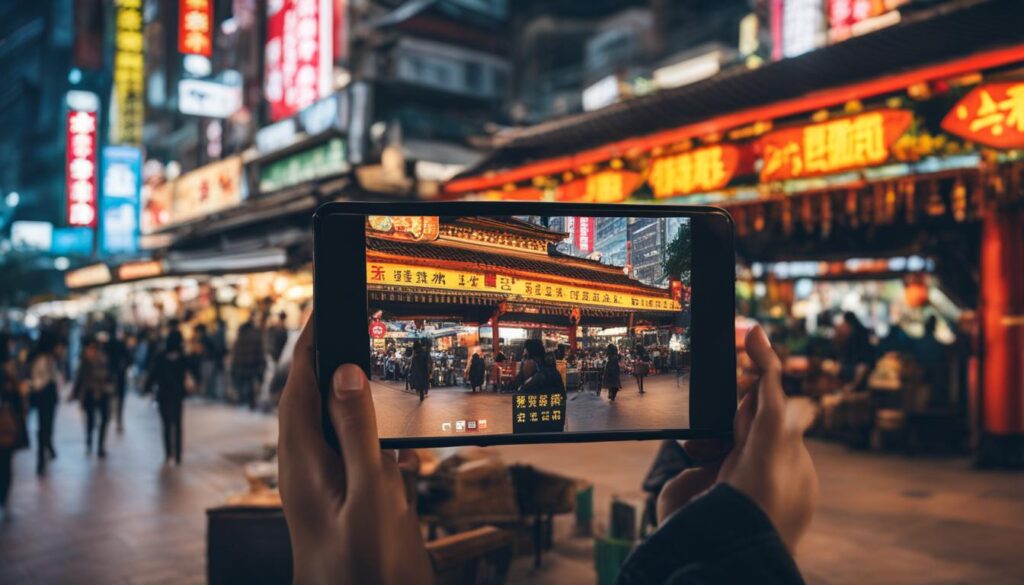
“Technology is paving the way for the future of travel, offering Chinese travellers a more seamless and convenient experience from start to finish.”
Many travel companies are investing in mobile apps, allowing Chinese travellers to book flights, hotels, and activities in one convenient location. These apps often feature Chinese language support, helping travellers navigate unfamiliar countries with ease.
Personalisation is key
Personalisation is another important aspect of enhancing the travel experience for Chinese visitors. Travel companies are now offering customized travel itineraries based on travellers’ interests, budget, and preferences. With the use of big data and AI, travel companies can analyze travellers’ behaviors and past purchases to provide tailored recommendations.
From personalized tours to bespoke dining experiences, Chinese travellers have many options for creating a truly unique trip.
The future of travel
The future of travel is an exciting place, full of innovative product offerings and emerging technologies. With the rise of smart tourism, virtual assistants, and biometric recognition, the travel experience is set to become even more seamless and convenient for Chinese travellers.
As the travel industry continues to evolve, it’s essential to stay up to date with the latest product offerings and technology to enhance your travel experiences and make unforgettable memories.
Conclusion
Learning Chinese for tourism in 2024 is essential for unlocking unforgettable travel experiences. By mastering essential phrases and tips, travellers can navigate cultural etiquette, understand visa requirements, and fully immerse themselves in the vibrant cities of Shanghai, Hong Kong, and Beijing.
As the Chinese tourism industry continues to grow, so do the opportunities for international travel. From exploring the unique charms of Hong Kong and Macau to diving into the enchanting city of Lijiang, there is no shortage of cultural immersion experiences to be had.
While the COVID-19 pandemic may have temporarily slowed travel demand, the industry is steadily recovering, with safety measures playing a crucial role in rebuilding travel confidence. As we look towards 2023 and beyond, the future of Chinese tourism is bright, with emerging travel trends and personalized experiences shaping the industry.
With the help of travel technology and product offerings, Chinese travellers can enhance their travel experience and connect with locals on a deeper level. So, if you’re planning a trip to China in 2024, be sure to master Mandarin and embrace Chinese hospitality and etiquette for an unforgettable journey.
Embark on a cultural journey and unlock unforgettable travel experiences in the upcoming year. The world is waiting for you.







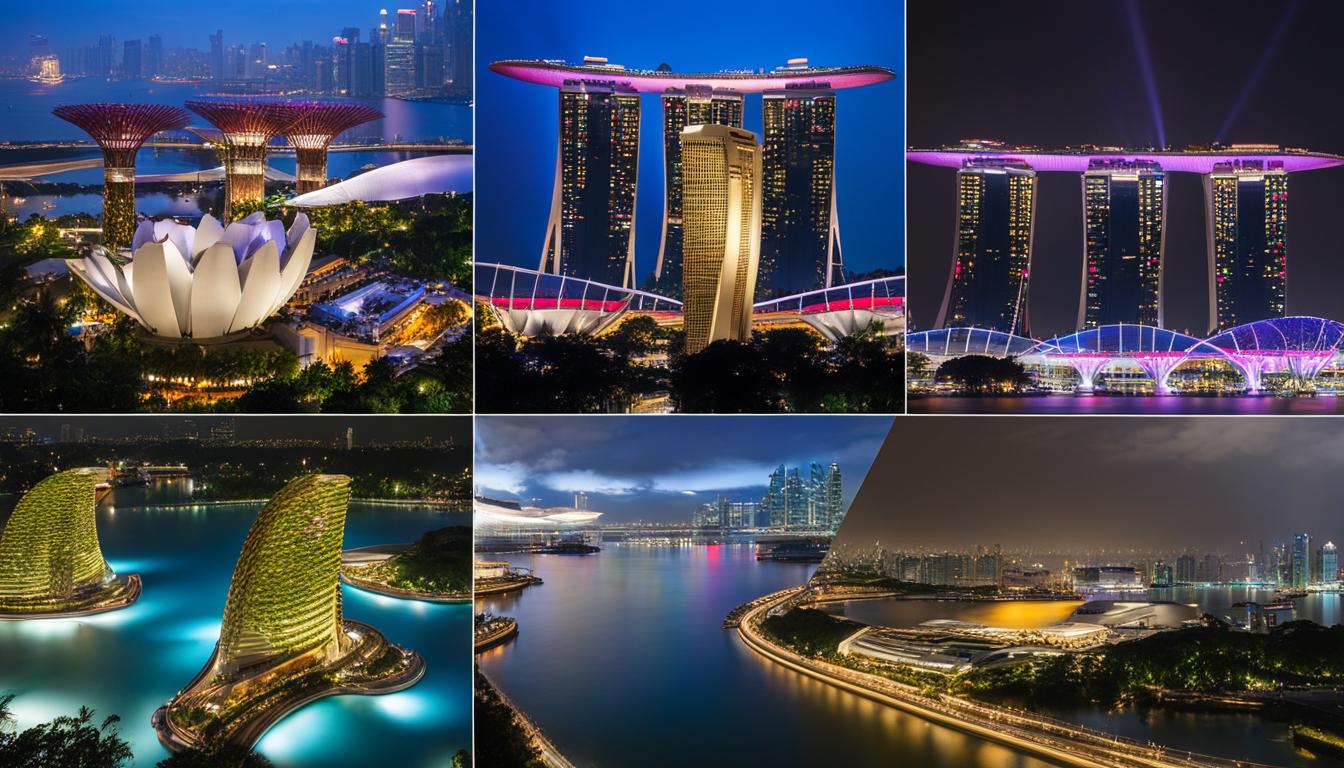



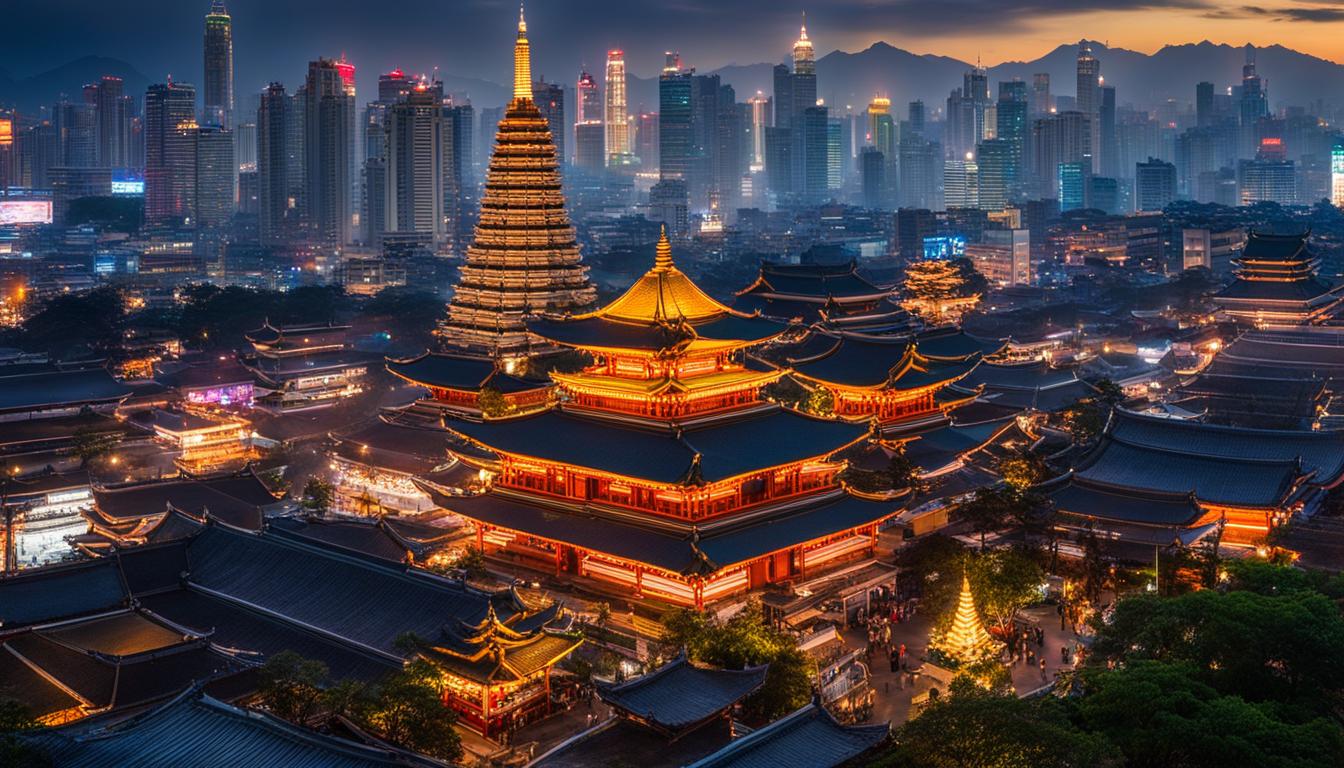




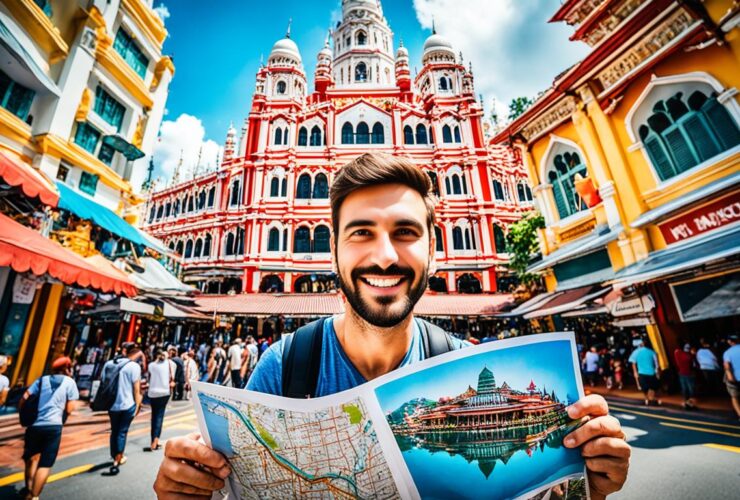

Leave a Reply
View Comments